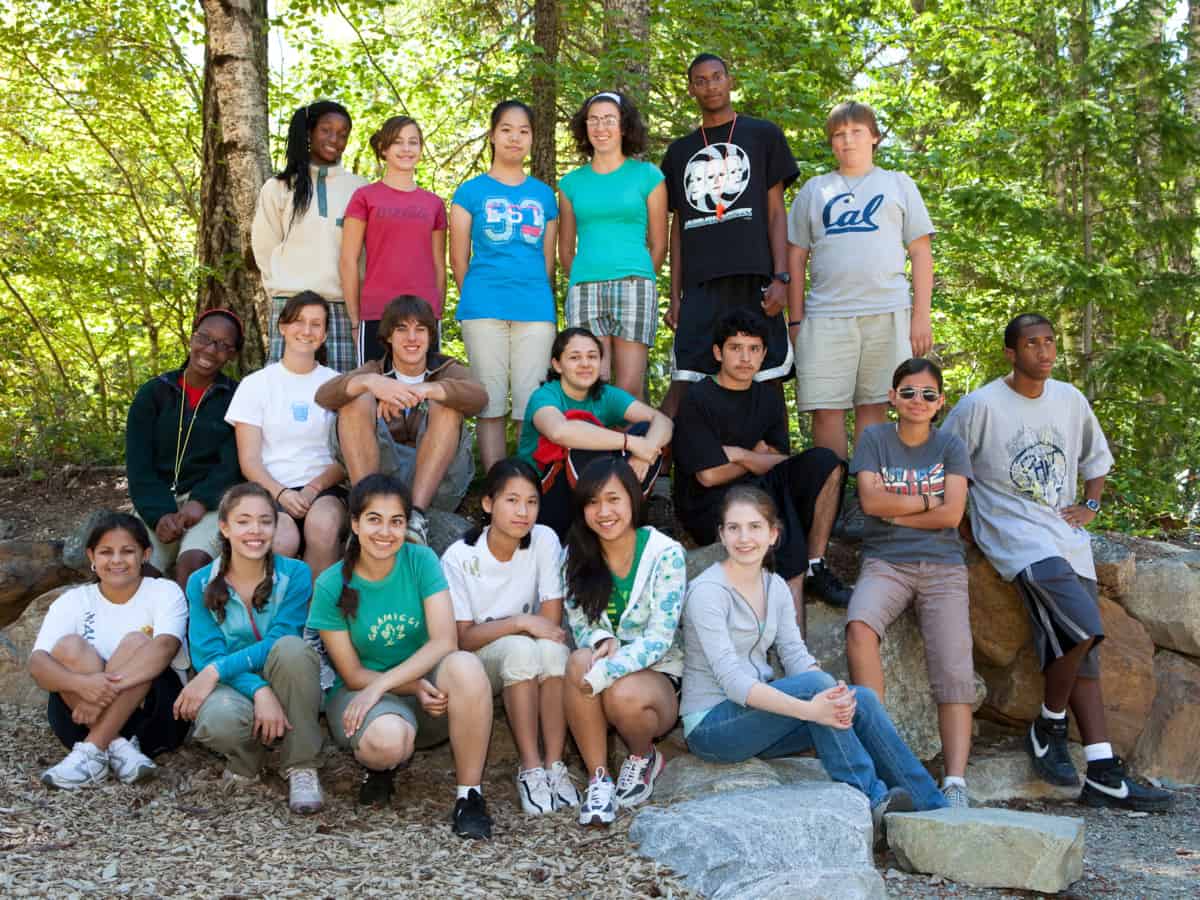
Reflections on the Parks Climate Challenge program
By Heather McPherson
The year was 2009, I was a sophomore in high school, and I had no idea I was about to embark on a series of memorable and life-changing adventures that upcoming summer with the North Cascades Institute (NCI). I had a wonderful 10th grade biology teacher who really connected with her students and their interests. We’d have occasional conversations after class about environmental impact concerns and any other topics that were sparked by our class content. When my teacher received information about a new program called the Parks Climate Challenge with NCI and the National Parks Foundation, she encouraged me to apply. I didn’t know too much about climate change at the time, but I knew I was definitely interested in the opportunity to learn more while exploring a new area of Washington!
Fast-forward a few months to June and I was trying to zip up an oversized duffle bag of suggested clothing and hiking gear, and was cautiously excited and on my way to the meeting point at SeaTac Airport to join the rest of my cohort and NCI crew leaders.
All together, we were a group of four NCI leaders and 19 high school students from the greater Seattle, San Francisco, Denver, Chicago, and DC areas. We made up the pilot cohort for the Parks Climate Challenge, that would later evolve into the Cascades Climate Challenge program, and then become the Youth Leadership Adventures program – which still exists today, over a decade later.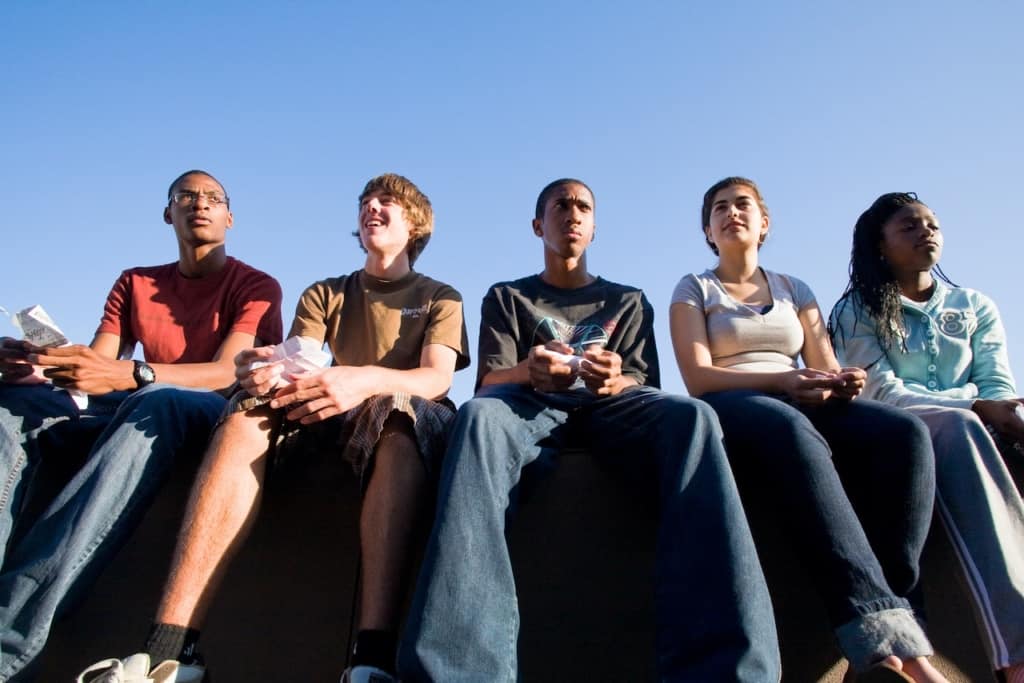
We began our time together with some icebreakers and discussions, with one night in Seattle before kicking off the heart of our summer adventure. We spent an amazing month in and around the North Cascades National Park and the North Cascades Environmental Learning Center while learning about climate change science, ecosystem interconnectedness, stewardship, leadership, and communication. Activities included hiking, camping, teaming up to set up tents and prepare camp meals (when we weren’t indulging in the delicious meals prepared professionally at the Environmental Learning Center), backcountry canoeing and camping on Ross Lake, reflecting and journaling, restoration planting, generating and practicing lesson plans to educate others on climate change and stewardship – the list goes on!
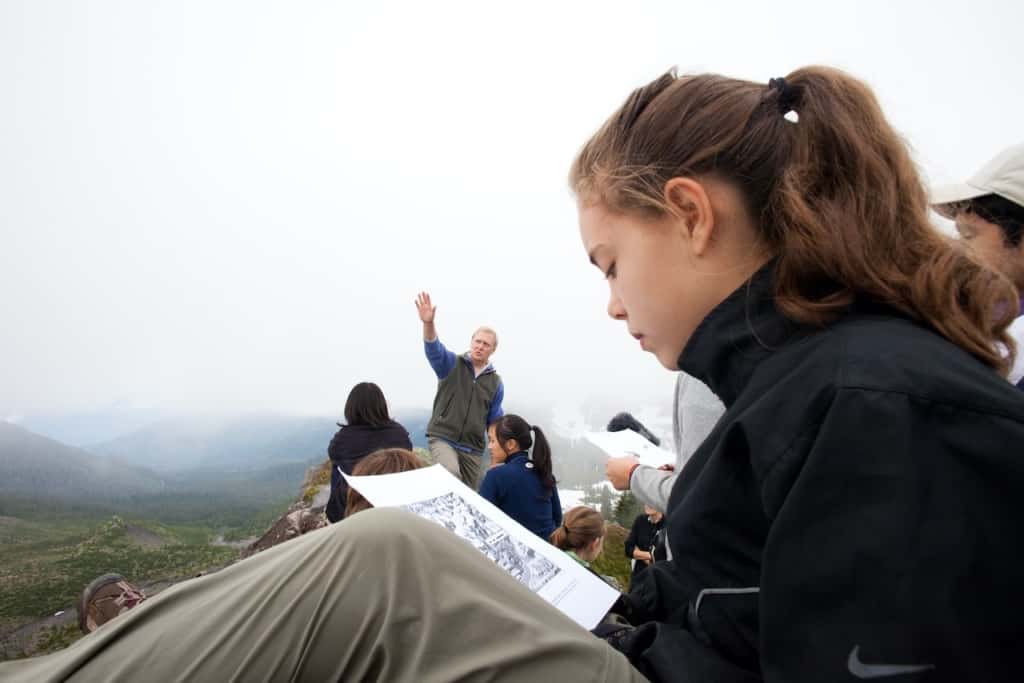
Many of our adventures had direct connections to understanding climate change effects firsthand in the ecosystems we were exploring. On the Railroad Grade trail on Mt. Baker, we hiked to visit a receding glacier that had once extended to form the glacial moraine (ridge-like formation) we were walking on.
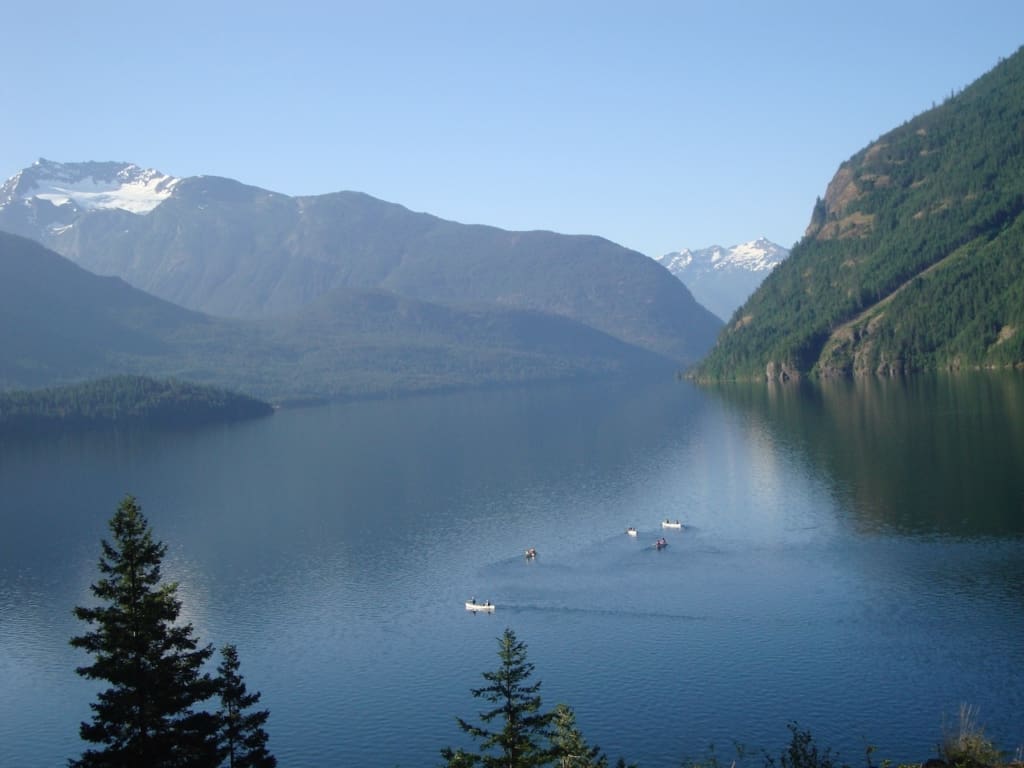
On Ross Lake, we paddled out in a small boat to lower scientific instruments into the lake and check if the depths still contained suitable water temperatures and levels of dissolved oxygen for bull trout. We learned how even a small increase in average water temperature could adversely affect key fish species and their food chains.
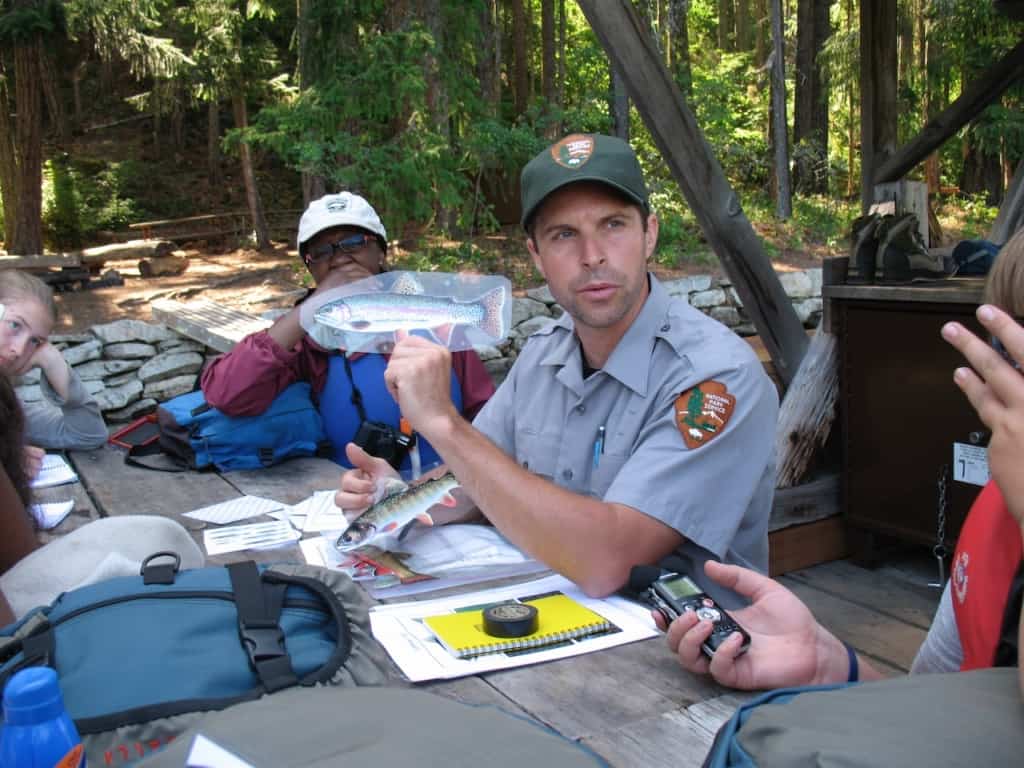
We toured a hydroelectric plant and learned about the connection between temperature and precipitation – finding out that warmer winter temperatures lead to less snowpack, more flooding, and a higher potential of drought and hydropower shortages in the summer months.
Throughout the program, we had opportunities to meet and learn from various NCI staff, Park Service personnel, and other professionals. These interactions included face-to-face time with: environmental educators, program directors, advocates, business founders, environmental scientists, fish biologists, geologists, interpretive rangers, graduate students, and more.
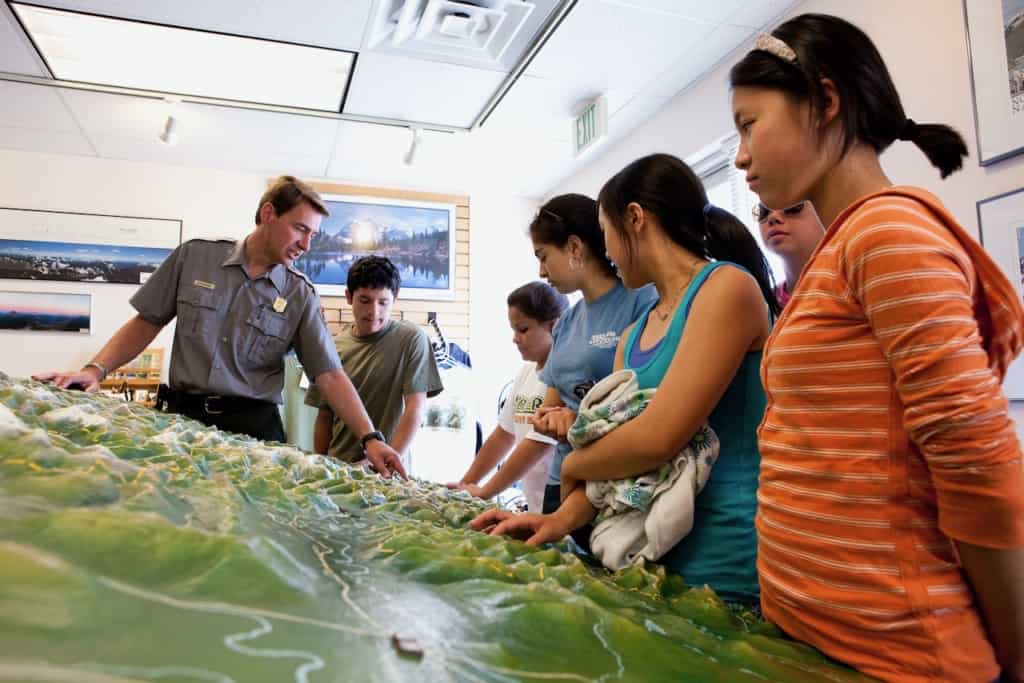
Meanwhile, we were building close and meaningful connections on a regular basis within our summer cohort of NCI crew leaders and fellow high school students. I felt that I bonded with this group faster than I’d ever bonded with anyone in other settings, namely because we spent so much time together adventuring and learning, we had to rely on each other, and we didn’t have cell phone service or other technology distractions. We came from different cities, with different lived experiences and different comfort levels in outdoor recreation settings, yet we quickly became a family – with deep discussions, many laughs and inside jokes, and even an original song about our group.
During that time, we gained knowledge, skills, more confidence in our abilities, and genuine connections with people that cared about each other, communities, and the environment. As the month in the North Cascades came to an end, our cohort transitioned to planning community service projects in small, city-specific groups, as well as planning a whole-group service project in Washington DC (sidenote: that my first time participating in group phone conferences, which felt like a big deal back then!).
The service projects took place in autumn of 2009, with each tailored to include hands-on learning experiences that fit our varied audiences and settings. Each community service project was unique, took weeks of planning, and typically involved a series of classroom visits to elementary school students and a culminating outdoor field trip at a local city park or national park. As high school students planning and carrying out these projects (with NCI and National Parks Foundation support), we had rewarding interactions with students and others in our community, while also advancing our skills in lesson planning and logistics coordinating.
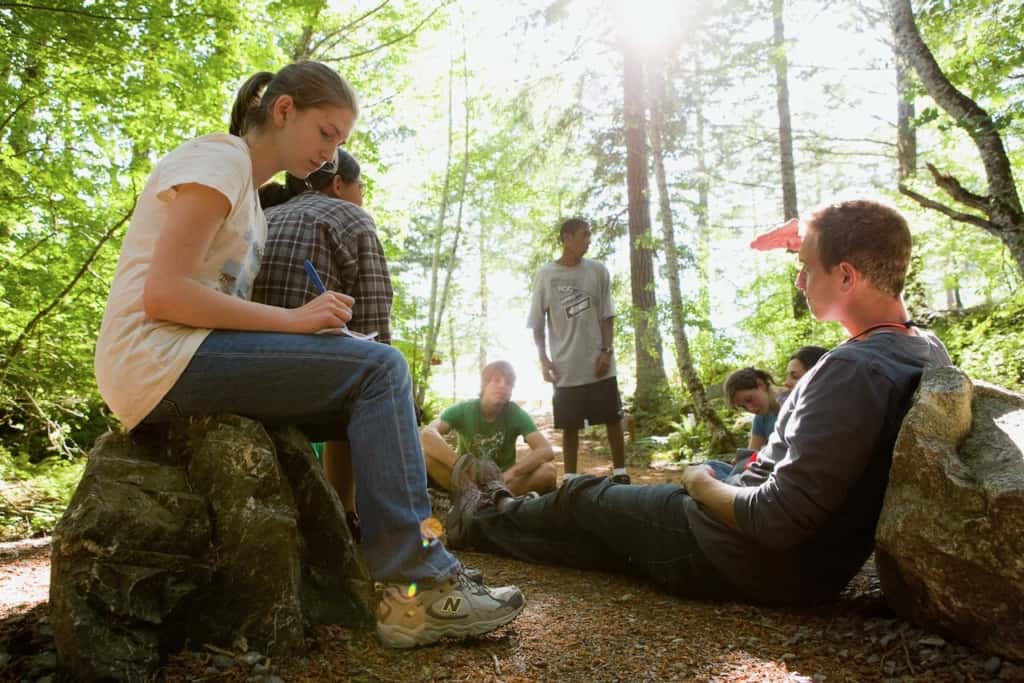
Somehow, it’s been eleven years since 2009 and my participation in the Parks Climate Challenge! Since then, I’ve returned to the Environmental Learning Center a few times, including two weekends in 2010 and 2014 for the Youth Leadership Conference (YLC). The YLC provided an opportunity for student alumni of NCI programs to return for a variety of panels, workshops, and interactive activities. These sessions and activities were focused on continuing stewardship conversations, planning for college, preparing for application and interview processes, and networking with environmental professionals.
I found these interactions, along with those from my time with the Parks Climate Challenge, to be extremely valuable and inspiring. I’d had a general interest in the environmental career field during high school, but the exposure to NCI, the Park Service, and other professionals helped me realize how tangible an environmentally-centered career could be, and demonstrated the broad variety of career path options.
Looking back, 11+ years later, my experiences with NCI were major stepping stones in my education and career journey. Through building connections with NCI and Park Service staff, I had an amazing summer job in North Cascades National Park during college, which in turn led to other fieldwork opportunities with other organizations – a “cascade” effect (excuse the pun) of one opportunity leading to another as I gained more experience. After graduating with a bachelor’s degree in civil and environmental engineering, I worked on hazardous waste remediation sites (also known as brownfield sites). Currently, I work as an engineer on flood control and river habitat restoration projects.
I’m happy to say I still get to spend time outdoors as part of my job, and I’m delighted to say that I still have a number of genuine friendships and connections from my time in NCI programs. NCI and the North Cascades are truly special to me, and I’m so glad that empowering, immersive youth programs continue to exist (even during a pandemic!).
I’m a supporter of NCI and give when I’m able – their programs are hugely impactful in providing hands-on outdoor education and potentially helping students to explore and develop career plans, which in turn may lead to more ways students can protect the environment and infuse sustainable practices.
Learn how you can support transformative educational experiences in nature for all at ncascades.org/support.
Photos by Benj Drummond.


Heather! What great memories and can’t believe it was 11 years ago. So happy to see the pictures and hear about what you are up to.
I also can’t believe this was 11 (going on 12) years ago! Hope you’re doing well!
Thanks Heather for sharing how this program “planted a seed” that grew into a mighty oak, as the saying goes. Your dedication to environmental work is greatly appreciated!
Thanks for the opportunity to reflect and share how NCI has been a part of my journey!
Heather, thanks so much for remembering, reflecting and sharing this special time with us again.
Thanks Saul, it was nostalgic and meaningful to reflect on the experiences and fun memories!